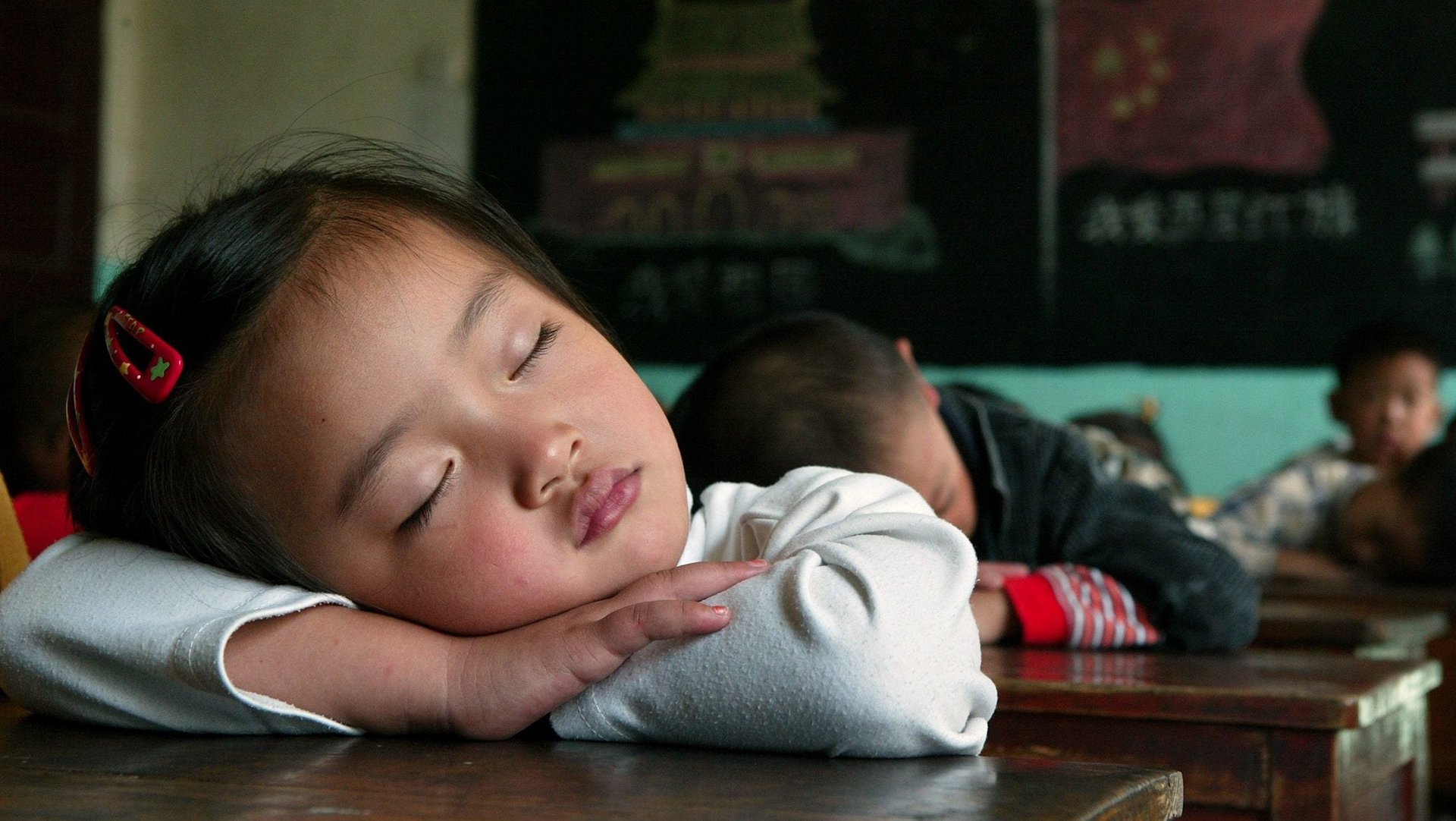The simple thing parents can do to protect kids from obesity and mental-health problems
British kids desperately need more sleep.


British kids desperately need more sleep.
An investigation conducted by The Guardian has found that children and teenagers in the UK face a mounting sleeplessness crisis that is impacting their mental and physical well-being. The newspaper analyzed public health data and found that hospital admissions of young people under the age of 16 with a primary diagnosis of sleep disorder have risen sharply in six years, from 6,520 in 2012-2013 to almost 9,500 in 2017.
In the UK, a greater understanding of the interplay between sleeplessness and conditions like obesity and anxiety is shedding light on what has become a fundamental public health concern. Across the world, children are sleeping less. Experts have attributed this rise in sleeplessness to a rise in anxiety and other mental health disorders, an increase in child obesity, which contributes to sleep apnea, and the increased use of technology before bed.
The impact of sleep on kids’ health
Sleep is crucial to a child’s health. The UK’s National Health Service (NHS) recommends that kids from four to nine years old get between 11 and 10 hours of sleep a night, while kids from 10 to 16 years old should get about nine hours.
Sleep plays a critical role in human brain function and several physical functions, including metabolism, appetite regulation, and the functioning of the immune, hormonal, and cardiovascular systems. The consequences of not getting enough sleep, or of poor-quality sleep, can include increased stress and anxiety, reduced quality of life, emotional distress, mood disorders, reduced cognition, memory, and performance, and behavior problems in otherwise healthy people. Sleep is especially crucial in early childhood, between birth and five, when the infant brain is developing (pdf), and for teenagers, who are more susceptible to mental and emotional disorders. A Harvard study has shown that children between the ages of three and seven who don’t get enough sleep are more likely to have problems with attention, emotional control, and peer relationships.
There are many reasons why today’s kids seem to be sleeping less, or worse, than before. Anxiety and depression have increased among young adults: According to the Centers for Disease Control and Prevention, one in five US children between three and 17 has a diagnosable mental, emotional, or behavioral disorder in a given year. Only 20% of these children are ever diagnosed and receive treatment. This is important because anxiety has a big impact on sleep, and sleeplessness can trigger or worsen anxiety levels in turn.
The sleeplessness crisis has also been linked to a rise in childhood obesity, which is associated with sleep apnea and other sleep disorders. It’s likely not a coincidence, then, that the UK, which has the most chronically sleep-deprived students in Europe (pdf), also suffers from the worst obesity rates in western Europe.
What parents can do to help their kids sleep
Helping kids get enough sleep is one of the best things parents can do for their children. Imposing a limit on screen time at night can encourage children’s bodies to produce melatonin, the hormone that controls the sleep/wake cycle, or circadian rhythm. Parents can also encourage daily exercise, which encourages sleep while being good for a child’s mental and physical health.
Addressing the issue of child sleeplessness will benefit millions of kids and parents, but also their countries’ public health systems. In the UK, for example, where the NHS is stretched and adolescent mental health services face a funding crisis, “Britain’s sleep problem is costing unnecessary millions in prescriptions, GP appointments and specialist care,” Jenny Kleeman writes for the Guardian.
As Michael Farquhar, a consultant in sleep medicine at the Evelina Children’s hospital, explains: “If you miss [sleep] for weeks or months, you won’t fall to bits. But the longer you leave it the more problems it causes.”
Correction: An earlier version of this article incorrectly referred to depression and anxiety as “socio-emotional disorders.”
Read more from our series on Rewiring Childhood. This reporting is part of a series supported by a grant from the Bernard van Leer Foundation. The author’s views are not necessarily those of the Bernard van Leer Foundation.